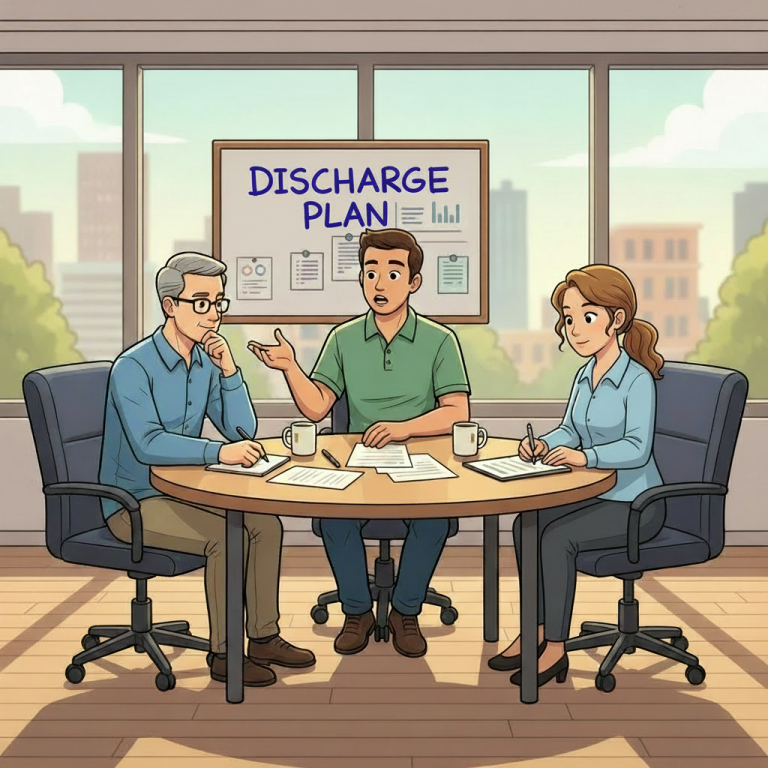Importance of Therapy Team in CTS
Therapy teams play a crucial role in Community Transition Support (CTS), particularly for people with mental health challenges. Their involvement ensures that the transition from a hospital to a community-based setting is smooth and effective, focusing on the person’s long-term well-being. By conducting thorough assessments and creating tailored interventions, the therapy team helps address both physical and mental health needs, offering support that goes beyond immediate care. This holistic approach is key to helping people regain independence, manage ongoing conditions, and improve their quality of life within their community.
The therapy team works closely with other health and social care professionals to provide emotional and practical support. Their expertise allows them to design care plans that factor in each person’s unique requirements, considering risks and the need for advocacy. This comprehensive support ensures that the transition is effective and sustainable, reducing the likelihood of hospital readmission and promoting community integration. Through collaboration with families, carers, and other services, the therapy team facilitates a well-coordinated approach, ensuring that the person’s needs are met during every stage of the transition process.

Responsibilities of Therapy Teams
The responsibilities of therapy teams in Community Transition Support are broad and vital in ensuring a successful move from hospital to community settings. These teams work across multiple disciplines to assess, plan, and deliver person-centred care that addresses both immediate and long-term needs. Their role extends beyond treatment, as they support people in regaining independence, managing complex challenges, and improving overall well-being. The effectiveness of the therapy team lies in their ability to collaborate with other professionals, ensuring a holistic approach to care during the transition.
Understanding The Individual’s Needs
One of the primary responsibilities of a therapy team is to develop a deep understanding of each person’s unique needs. This begins with a comprehensive assessment that considers physical health and emotional, social, and psychological factors. Therapy teams work closely with people, their families, and carers to gather information about care planning. This person-centred approach ensures that all aspects of a person’s life are considered, enabling the development of a tailored support plan that aligns with their goals and preferences.
Understanding individual needs also involves identifying risks and any barriers to successful integration into the community. Therapy teams often engage in advocacy, ensuring people can access necessary resources, such as housing or additional health services. By focusing on each person’s strengths and challenges, the therapy team can deliver interventions that meet immediate health needs and empower them to take control of their future and thrive in their new environment.
Personalised Care Planning
Personalised care planning is at the heart of the therapy team’s role in CTS. By working closely with the person, their family, and other health and social care professionals, therapy teams create care plans tailored to each individual’s unique needs, preferences, and circumstances. This process involves identifying goals, determining the level of support required, and setting clear steps to successfully transition into the community. The focus is on creating plans that address physical needs and emotional, social, and practical aspects, ensuring a holistic approach to care.
The personalised care plans are continuously reviewed and adjusted to respond to the person’s evolving needs, particularly in cases where people require complex support. By maintaining flexibility in care planning, therapy teams ensure that the person remains central to every decision, facilitating long-term success and promoting independence within the community.
Therapeutic Interventions
Therapeutic interventions are a key responsibility of therapy teams, designed to address both immediate and long-term health needs during the transition from hospital to community settings. Depending on the person’s specific needs, these interventions may include physical therapies, mental health support, occupational therapy, and speech and language therapy. The therapy team works to reduce the impact of physical and psychological challenges, enabling people to regain independence and adapt to life outside of a clinical environment.
The interventions provided are not just reactive but proactive, focusing on preventing relapse or further deterioration. Therapy teams collaborate with other professionals to ensure therapeutic support is delivered promptly and coordinated, offering people the best chance at a successful transition.
Education and Training
Education and training are essential components of the support therapy teams provide, both for the person transitioning and their carers. Therapy teams ensure that people have the knowledge and skills to manage their own care in a community setting. This might include training on managing medications, recognising early signs of decline, and learning new techniques to support daily activities.
Carers and families are often included in the educational process to ensure they feel confident in their role. This collaborative approach strengthens the person’s support network, providing reassurance and promoting greater independence while reducing hospital readmission risk.
Coordination and Communication
Effective coordination and communication are essential to delivering health and care excellence during the transition process. Therapy teams serve as the central point of contact, ensuring that all professionals involved in the person’s care—including social workers, health services, and community support providers—are aligned with shared goals. This collaborative effort is especially important when supporting young people requiring complex care, ensuring their transition is smooth and comprehensive.
Strong communication channels between the therapy team, social care services, the person, and their family help prevent misunderstandings and quickly address any changes in care needs. By keeping all parties informed and engaged, the therapy team ensures a well-coordinated transition process, reducing delays and enhancing the overall quality of care provided.
Improving Overall Well-Being
The primary goal of the therapy team’s involvement in CTS is to improve the overall well-being of people transitioning into the community. This goes beyond addressing medical needs, as the therapy team also focuses on building emotional resilience, boosting confidence, and facilitating reintegration into daily life. By delivering person-centred therapeutic interventions and collaborating with social work professionals, they create strong support networks that empower people to lead fulfilling and independent lives.
In addition, by focusing on holistic well-being, therapy teams help reduce hospital readmissions and enhance long-term health outcomes. Their work ensures that people feel supported not only physically but also mentally and socially, helping them thrive as they settle into their new environment.
Community Transition Services with Nurseline Healthcare
Nurseline Healthcare’s Community Transition Services provide a comprehensive and compassionate approach to supporting people as they transition from hospital care to community settings. Our highly skilled therapy teams offer person-centred care, ensuring each transition is tailored to the unique needs of the person, whether they have multiple needs or require complex support. We collaborate closely with families, social care services, and other health professionals to create seamless transitions, helping people regain their independence and improve their overall well-being.
What sets Nurseline Healthcare apart is our commitment to delivering flexible, responsive care that focuses on the whole person, not just their immediate needs. With services available across the UK, our teams provide on-the-ground support that makes a real difference.
When you choose Nurseline Healthcare for Community Transition Services, you’re opting for a team that truly cares about the well-being and long-term success of each person we support.
Get in touch today to learn how we can support you or your loved ones during this critical transition.
Together, we can create a future where every person receives the care and support they need to thrive.






